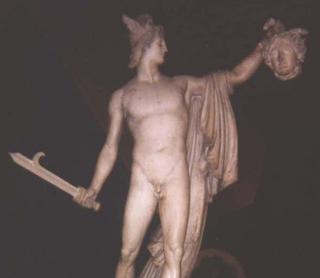Perseus
Last year, on 9/11, I did a small post on the gorgon and Medusa to look back at an ancient view of terror and despotism.
This year, I'd like to consider Perseus who defeated Medusa by looking indirectly at her through the reflection on his shield, allowing him to decapitate her while she slept.

There's something very telling about this story--about a hero who kills the monster of terror by not facing it straight on, but rather by indirectly facing it. The terror is real and insurmountable when considered by itself. But to find a different vector of approach, if you will--by finding a way to it without approaching it straight on--is the way to defeat it.
There's wisdom in that.
Athens was originally formed by families (i.e. large clans) who banded together in order to fight off pirates. The city (polis) was a strategy against destruction, theft, and death. But even after the polis was formed to defend against pirates and other external threats, the internal ones arose--the tyrant and despot who could be a domestic threat for sure. What does a city do to fight off the despot who uses terror to have his way with the people? A walled city doesn't do anything to defend against that... nor does an army which can be very easily manipulated by the despot. It has to be something different--a different (categorically different) vector of force that stays the hand of the despot, and (hopefully) gets rid of the threat altogether.



<< Home